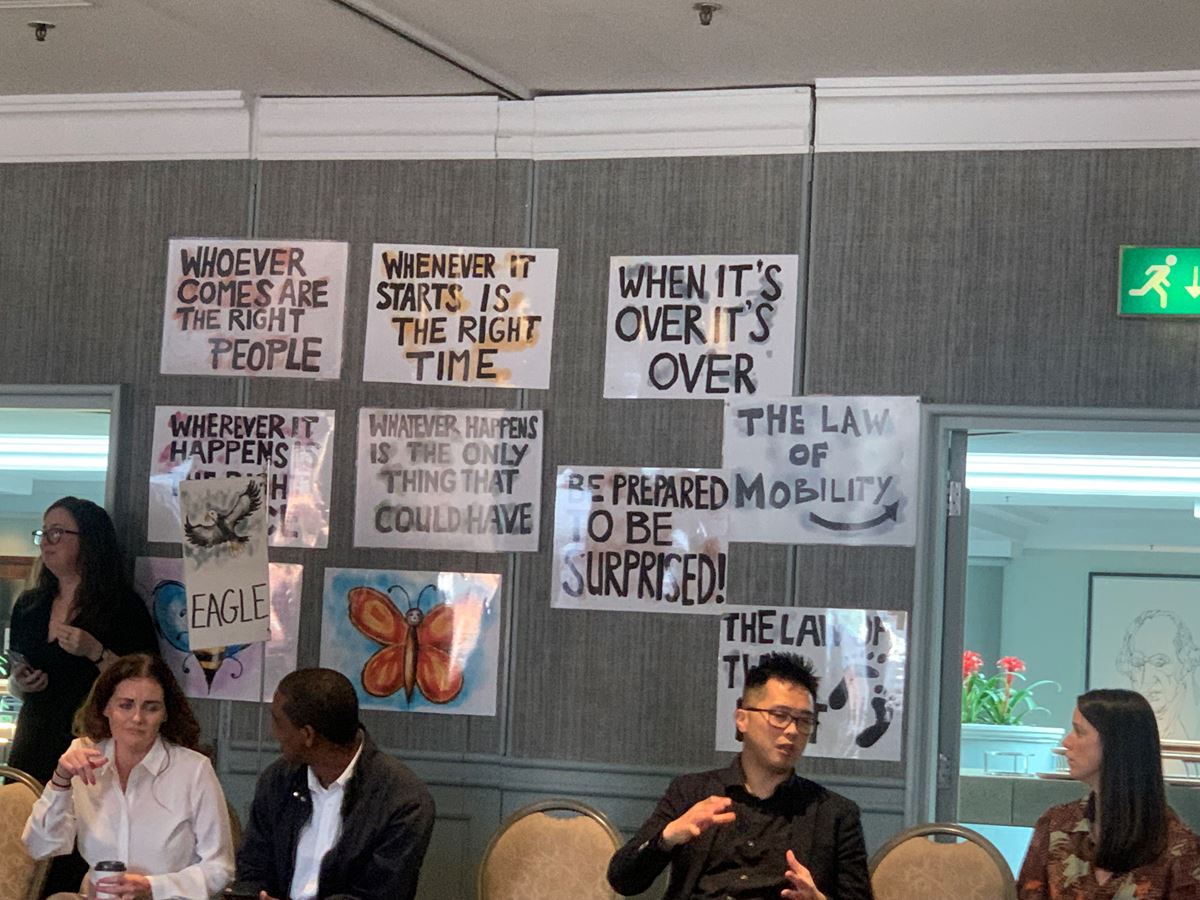What is the future of health research?
2 minute read
Sarah shares thoughts and key takeaways from the Academy of Medical Sciences Emerging Research Leaders Summit, which focuses on the future of UK health research
I was hugely fortunate to be invited earlier in the month to the Academy of Medical Sciences Emerging Research Leaders Summit on the future of UK health research (knowing someone on the board might have swung it for me – the wonderful Lynn Laidlaw, previously my partner in crime at Camp Digital to talk about participatory working, sharing power, data and research).
The Academy is the independent voice of biomedical and health research in the UK, which seeks to support the whole research sector, working across academia, policy, and industry. As part of their forward strategy, and to celebrate their own 25th birthday, they brought together a diverse range of researchers (diverse in terms of sector, discipline, stage of career, and geography) to answer the question: “What should health research look like in 25 years?”
The completely open space format that the summit took was a novel experience for me. I was most struck by the huge amount of trust it puts in participants, to propose the evolving agenda, to move freely between groups based on where they want to contribute, to summarise the discussions, and even to take themselves out for a break when they need it (“give people the gift of your absence” is a phrase I’m going to hold on to).

The topics chosen were a brilliant insight into what matters now and next in health and biomedical research in the UK and globally. How do we work better with patients and the public, how do we implement change at scale, how does AI affect our work (for good or bad), how do we put prevention, womens’ health, and disability justice on the health agenda, and how do we better collaborate across sectors.
Two groups I was part of stood out became of projects we’ve done or are doing here at Nexer. Firstly, a conversation about how and if we store health and research data over the next 25 years, the costs and benefits of doing so (and who pays the costs and gets the gains). We talked about data safe havens in Scotland and secure data environments in England. How different groups feel about the reuse of data for research is something we’re exploring right now for Health Innovation Manchester (you can read about our previous collaborations on digital services)
Secondly, a discussion about how dissemination needs to change in the next 25 years. While discussing open data, preprints, lay summaries and other issues familiar to those who need to ‘publish or perish’, we also talked about the need for communication beyond papers. Understanding who the stakeholders are and how they have different communication needs and preferences was recognised as critical to ensuring that research findings have an impact in the world. It was also recognised as requiring, in Liam Neeson’s terms, ‘a very particular set of skills’ that researchers in some sectors may not have.
This is exactly the kind of expertise that we have in UX and design, and we’ve previously worked with academics and patient contributors to understand how for example content design and website usability testing can help improve research outputs. And the applications aren’t just in the health either – our work in education often similarly requires this kind of approach.
There were some contributors from industry, more on the biomedical or basic science side. I think I was the only person there working in UX, and it strikes me this is an area where we need to collaborate more. There’s a huge amount that academics on the health services and translational side could learn from the methods and the ethos of UX research. At Nexer, we do a lot of work on accessibility and sustainability, both of which were only touched on (for example, discussing whether we have a responsibility to make research outputs accessible, and the environmental cost of building and storing large data sets over time.) By contrast, I think the summit showed that academia is further ahead in thinking about health inequalities and how to work ethically and equally with diverse communities, (though note ‘thinking about’ doesn’t mean further ahead in addressing these issues!).
There’s clearly much to learn from each other, and the generosity and sharing that the open space forum encouraged was a great illustration of how challenging, reassuring, and inspiring it can be to have discussions with people from different places.

Get in touch
Please email hilary.stephenson@nexergroup.com if you would like to work with our team on your project, or call our Macclesfield office on +44 (0)1625 427718

